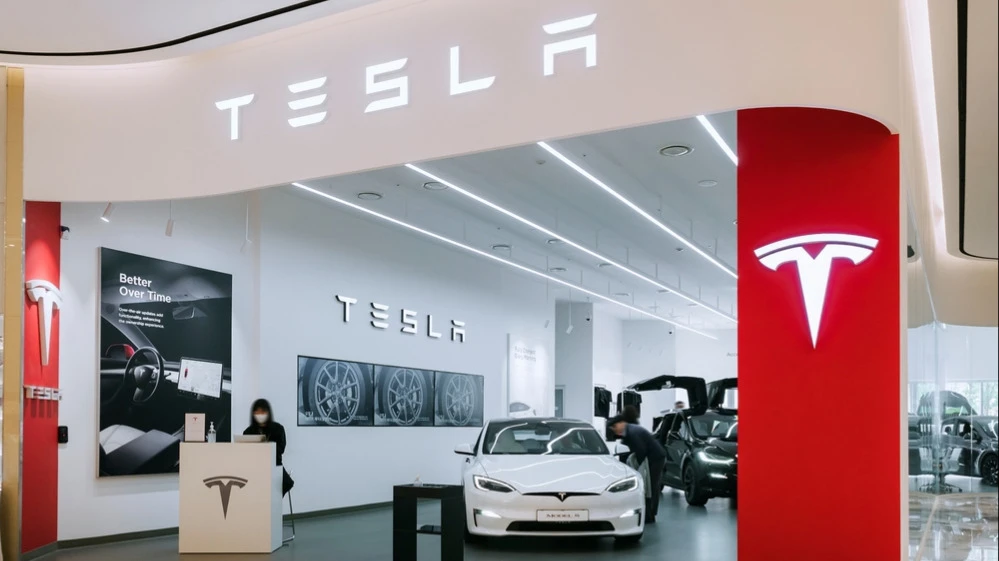Tesla's sell-off has gone too far, said RBC. Why does he advise buying the stock?
Analysts rate the electric car business lower than other areas: robotaxis, batteries, robots

Contrary to the growing risks to Tesla due to the political activities of its CEO Ilon Musk and the negative assessments of some analysts, RBC Capital Markets believes the sell-off in Tesla shares has gone too far. It raised the target price of the securities - expecting them to rise by 7%. In the long term, the securities deserve attention, despite the turmoil now, the investment bank believes.
Details
RBC analyst Tom Narayan believes investors have staged too big a sell-off in shares of electric car maker Tesla. In a note to clients quoted Yahoo Finance, the analyst raised his target price on the stock from $307 to $319, up 7% from the closing price on July 8. Narayan also reiterated an Outperform rating on the stock, which equates to a buy recommendation.
"We believe demand for Tesla's products remains strong even as competition in the electric vehicle market has increased," Narayan wrote in the note. - Tesla's leadership position, profitability, ability to generate cash flow and weight in the market are significant advantages that help the company fund its own growth."
How the RBC justifies its faith in Tesla
When evaluating Tesla, RBC analysts take into account all areas of the company's activities, where the production of electric cars is not the main thing. The analysts estimate long-term projects such as Megapack energy storage systems, autonomous driving and robotaxi systems, artificial intelligence and humanoid robots Optimus much higher, Yahoo Finance reports.
According to Narayan, owning Tesla shares is justified in the long term, despite the current difficulties. The robotaxi project could rekindle investor interest in the company's autonomous driving ambitions, the RBC analyst suggested.
Narayan predicted that Tesla's revenue will grow from $93.5 billion this year to $111 billion in 2026. Adjusted earnings per share (EPS) should increase from $1.99 to $2.99 in the same period. This growth will be driven by expansion, new product launches and an increased share of higher margin business outside the auto segment, RBC believes.
Risks for Tesla
RBC points to a number of risks for the automaker, including earnings volatility, rising costs and supply chain disruptions. The investment bank emphasizes that Tesla's business is "cyclical" and subject to economic downturns, especially in the face of rising interest rates and geopolitical instability, which could reduce consumer spending.
"The company's results in reporting quarters can be uneven due to delivery schedules and production disruptions, which can cause volatility in the stock," Narayan said.
Separately, the bank highlights the "Musk factor." The Tesla CEO has once again been in the spotlight due to political and controversial statements on the internet, raising questions about corporate governance and the long-term sustainability of the brand, Yahoo Finance notes. This unpredictability remains a major risk for investors, Narayan agrees.
Nevertheless, he believes that "Tesla remains a growth company."
What other analysts are saying
The threat to Tesla from Musk's political ambitions caused Morgan Stanley analyst Adam Jonas to worry, as he predicted a continued decline in the company's stock on July 8.
"While the situation remains volatile, we believe investors should be prepared for resources (financial, time, management) to increasingly shift to Mr. Musk's political priorities, which could increase pressure on Tesla stock in the short term," Jonas said. Despite this, he maintained a buy recommendation on Tesla stock with a $410 target price.
Tesla reported selling 384,122 vehicles in the second quarter, down 13.5 percent from a year ago. Declining demand for electric cars and CEO Ilon Musk's involvement in politics have led to boycotts and protests by consumers, making some analysts skeptical of the company's quick recovery. But not everyone blames Tesla's problems on Musk's ambitions, noted Yahoo Finance. For example, Cox director of industry analytics Stephanie Valdes Streeti told the publication that Tesla's sales decline is due to increased competition, an outdated lineup and signs of brand fatigue in the domestic market. An update to the popular Model Y hasn't helped support sales, she said.
This article was AI-translated and verified by a human editor
